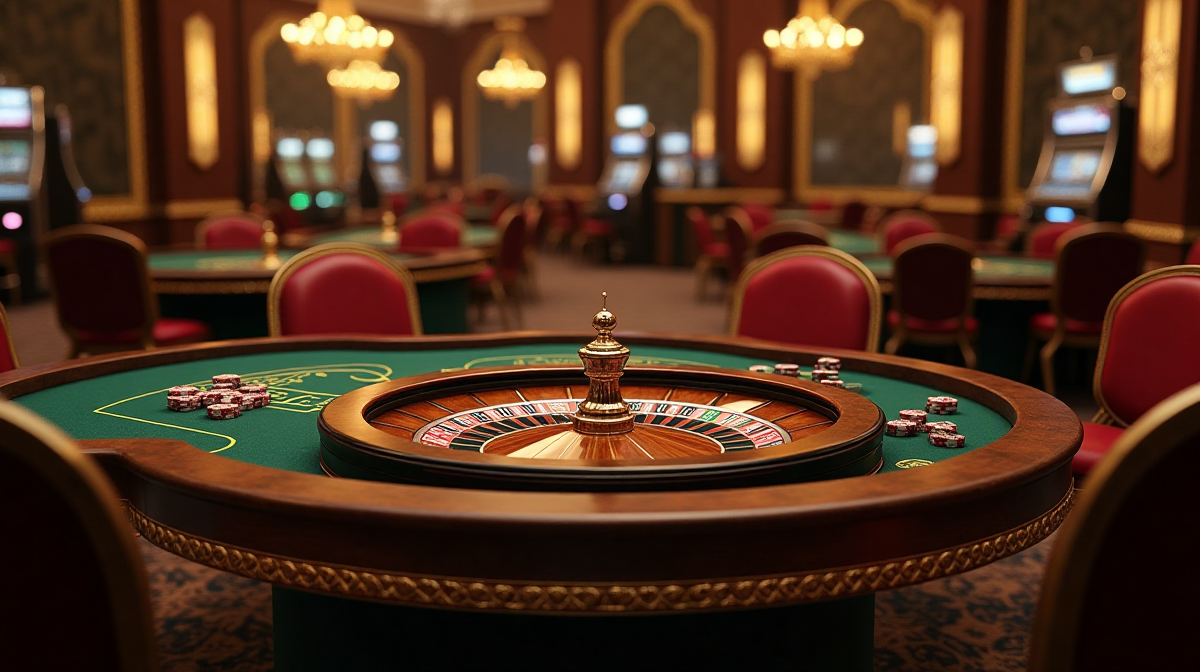Chess Against Computer: 5 Skill-Boosting Tips!
Why Play Chess Against a Computer?
Chess against a computer offers a unique and invaluable training ground for players of all levels. Unlike playing against a human opponent, a computer provides consistent, error-free play, allowing you to identify weaknesses in your own game with pinpoint accuracy. It’s a fantastic way to test new strategies, refine your tactical vision, and build resilience. Many players also enjoy the convenience of 24/7 availability and the sheer variety of skill levels offered. If you're looking for a new online casino experience, you might find options similar to starda casino зеркало for entertainment outside of chess.
Understanding Computer Skill Levels – Tailoring to Your Level
Most chess programs utilize an ELO rating system to represent their playing strength. Understanding this system is crucial. A higher ELO indicates a stronger player. Difficulty settings often allow you to adjust the ELO, ensuring a challenging but not overwhelming experience. Start at a level where you win around 50% of your games. This provides optimal learning conditions. Don’t be afraid to adjust the level frequently as your skill improves. Exploring platforms like игра. starda. casino. can offer diverse gaming experiences, but remember to prioritize focused practice to enhance your chess skills.
Brief Overview of the 5 Tips We'll Cover
We'll explore five key strategies to maximize your improvement when playing chess against a computer. These tips cover analyzing your losses, sharpening your tactical skills, mastering endgames, slowing down your thought process, and expanding your opening repertoire. Implementing these will help you unlock your full potential and consistently improve your game.
Analyze Your Losses - The Post-Game Review is Key
Utilizing Engine Analysis Tools
Losing a game to a computer can be frustrating, but it’s a goldmine of learning opportunities. Don't just move on to the next game; dissect your loss with the help of a chess engine. Tools like Stockfish (available on Lichess and other platforms) can analyze your game move-by-move, identifying inaccuracies and suggesting better alternatives. Many sites, and even apps, will offer this analysis automatically. This provides objective feedback on your decision-making process. You might also find interesting diversions – for example, some enjoy gaming platforms like starda.
Identifying Critical Mistakes: Tactics, Positional Errors, & Blunders
Engine analysis will highlight blunders (significant errors), tactical misses (opportunities you failed to seize), and positional errors (subtle inaccuracies that weaken your position). Pay close attention to the evaluation score provided by the engine. A large swing in the score often indicates a critical mistake. Focus on understanding why the engine suggests a different move. Was it a missed tactic? A flawed pawn structure?
Learning from the Computer’s Strengths - Where did it exploit weaknesses?
Computers excel at calculation and exploiting weaknesses. Identify the points where the computer gained an advantage and analyze how it capitalized on your mistakes. Did it punish your overextension? Did it exploit a weak king position? Understanding these patterns will help you avoid repeating them in future games.
Focus on Tactical Puzzles – Sharpen Your Calculation
Why Tactical Training is Crucial Against Computers
Computers rarely make tactical blunders, so you need to be exceptionally precise in your calculations. Tactical training is essential for improving your ability to spot and exploit opportunities. Regular puzzle solving will enhance your pattern recognition, calculation skills, and overall tactical awareness. It's a direct way to improve your ability to play chess effectively.
Recommended Puzzle Sources
Numerous resources offer tactical puzzles. Chess.com, Lichess.org, and Chesstempo.com are all excellent choices. These platforms offer puzzles of varying difficulty, allowing you to tailor your training to your skill level. Look for puzzles that focus on common tactical motifs like forks, pins, skewers, and discovered attacks.
Solving Puzzles with Time Constraints – Simulating Game Pressure
To make your puzzle training more effective, introduce time constraints. This simulates the pressure of a real game and forces you to think quickly and decisively. Start with a generous time limit and gradually reduce it as your skills improve.

Master Basic Endgames – Converting Advantages
Why Computers Excel at Endgames
Computers are notoriously strong in endgames because they can calculate variations with perfect accuracy. This means that even a slight advantage can be converted into a win with flawless play. This is why understanding basic endgame principles is particularly important when playing against a computer.
Key Endgame Principles
Focus on mastering fundamental endgame principles. King activity is paramount – bring your king to the center of the board. Understanding the concept of opposition (controlling key squares with your king) is also vital. Finally, learn to create and support passed pawns (pawns with no opposing pawns to stop their advance).
Common Endgame Studies to Practice - King & Pawn vs King, Rook Endgames
Practice common endgame studies like King and Pawn vs. King and basic Rook Endgames. These studies will help you internalize the key principles and develop a feel for endgame technique.
Slow Down & Visualize – Don’t Rush Your Moves
The Importance of Calculation Depth
Against a computer, you can't rely on your opponent making a mistake. You need to calculate multiple move sequences to ensure your moves are sound. Don't just look at your immediate move; consider the computer's likely response and your subsequent move.
Mental Visualization Exercises – Playing Through Variations in Your Head
Develop your ability to visualize the board and play through variations in your head. This is a crucial skill for both calculation and positional understanding. Start by visualizing simple sequences and gradually increase the complexity.
Avoiding “Hope Chess” - Only move if you understand the consequences.
Avoid hope chess – making moves based on wishful thinking rather than sound calculation. Before making a move, ask yourself: What are the consequences of this move? What will the computer likely do in response?. If you can't confidently answer these questions, reconsider your move.

Experiment with Openings – Expand Your Repertoire
Beyond Memorization: Understanding Opening Principles
Don't just memorize opening moves; understand the underlying principles. Control the center, develop your pieces quickly, and castle your king to safety. Understanding these principles will help you adapt to different opening variations and avoid getting caught off guard. You may find that even platforms like starda casino зеркало offer a different kind of strategic thinking, but chess requires deeper calculation.
Choosing Openings that Suit Your Style
Experiment with different openings to find those that suit your playing style. If you prefer aggressive, tactical games, consider openings like the Sicilian Defense or the King's Gambit. If you prefer more positional, strategic games, consider openings like the Queen's Gambit or the Italian Game.
Analyzing Opening Variations After Computer Games – Where did things go wrong?
After each game, analyze the opening variations with the help of an engine. Identify any inaccuracies you made and understand why the computer played a particular move. This will help you refine your opening repertoire and improve your understanding of opening theory.
Conclusion
Recap of the 5 Skill-Boosting Tips
We’ve covered five essential tips for improving your chess game against a computer: analyze your losses, focus on tactical puzzles, master basic endgames, slow down and visualize, and experiment with openings.
The Importance of Consistent Practice
Consistent practice is the key to improvement. Make chess training a regular part of your routine. Even short, focused sessions can yield significant results. And remember, platforms like play chess online offer a great way to put these skills into practice.
Resources for Continued Learning
- Lichess.org
- Chess.com
- Chesstempo.com
- Stockfish (Chess Engine)

